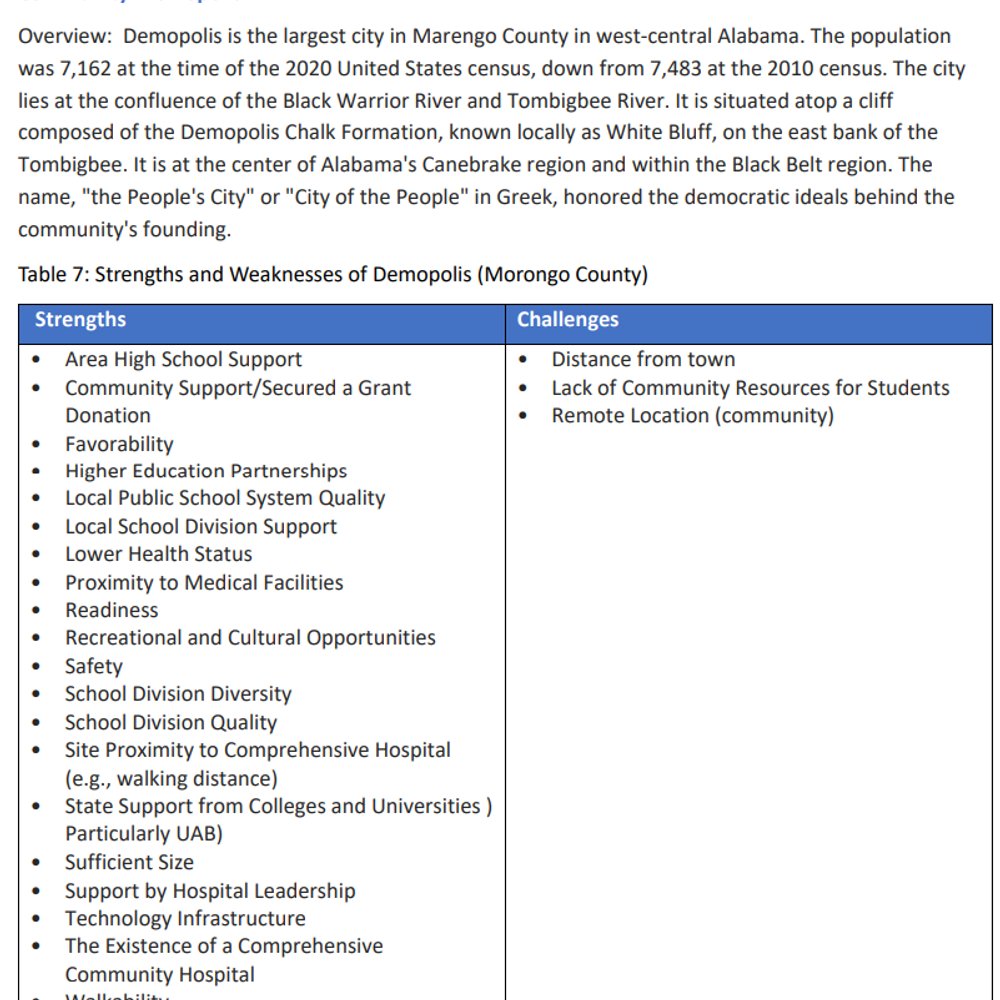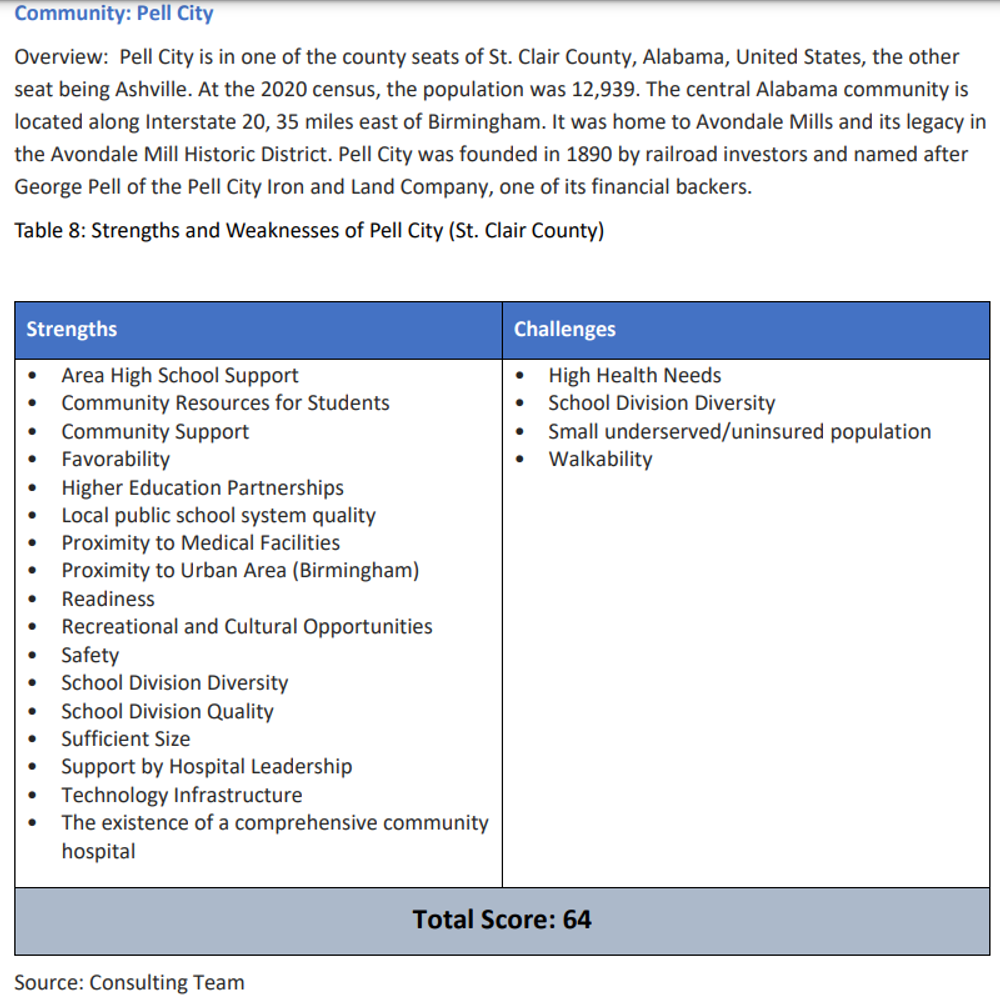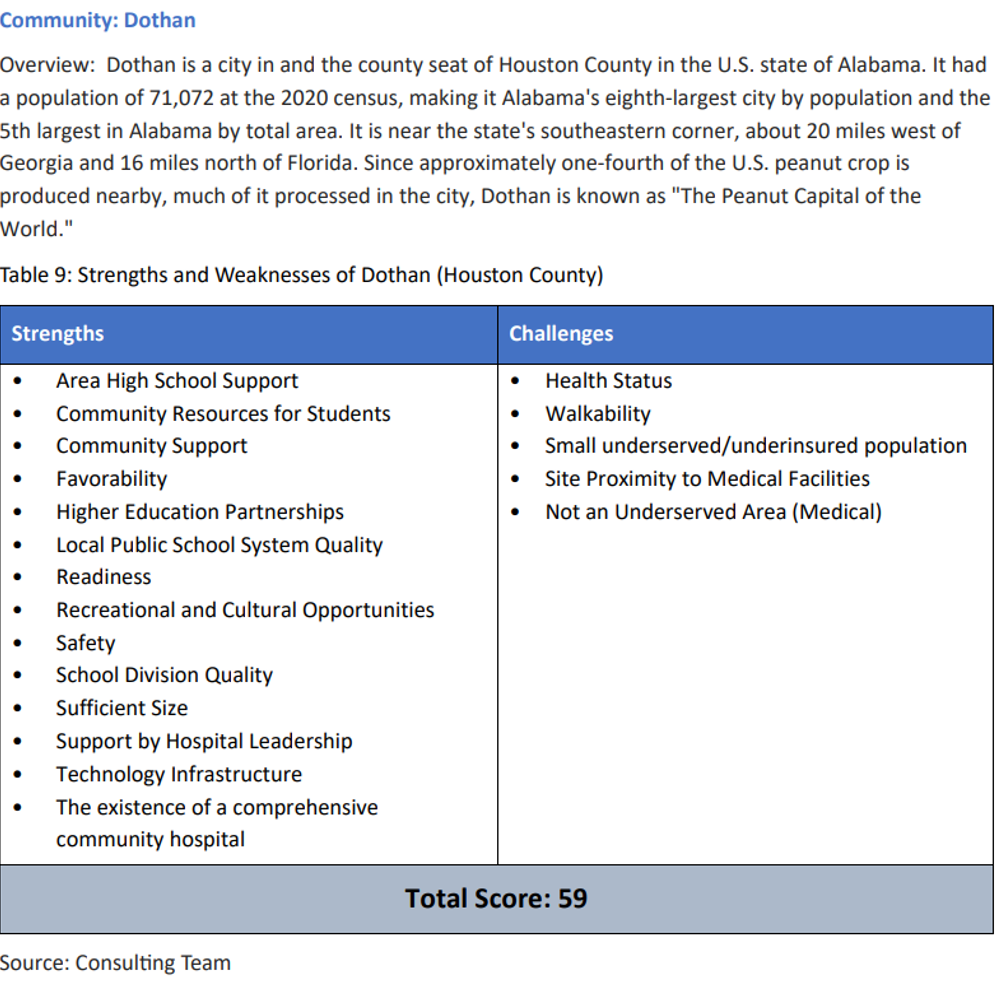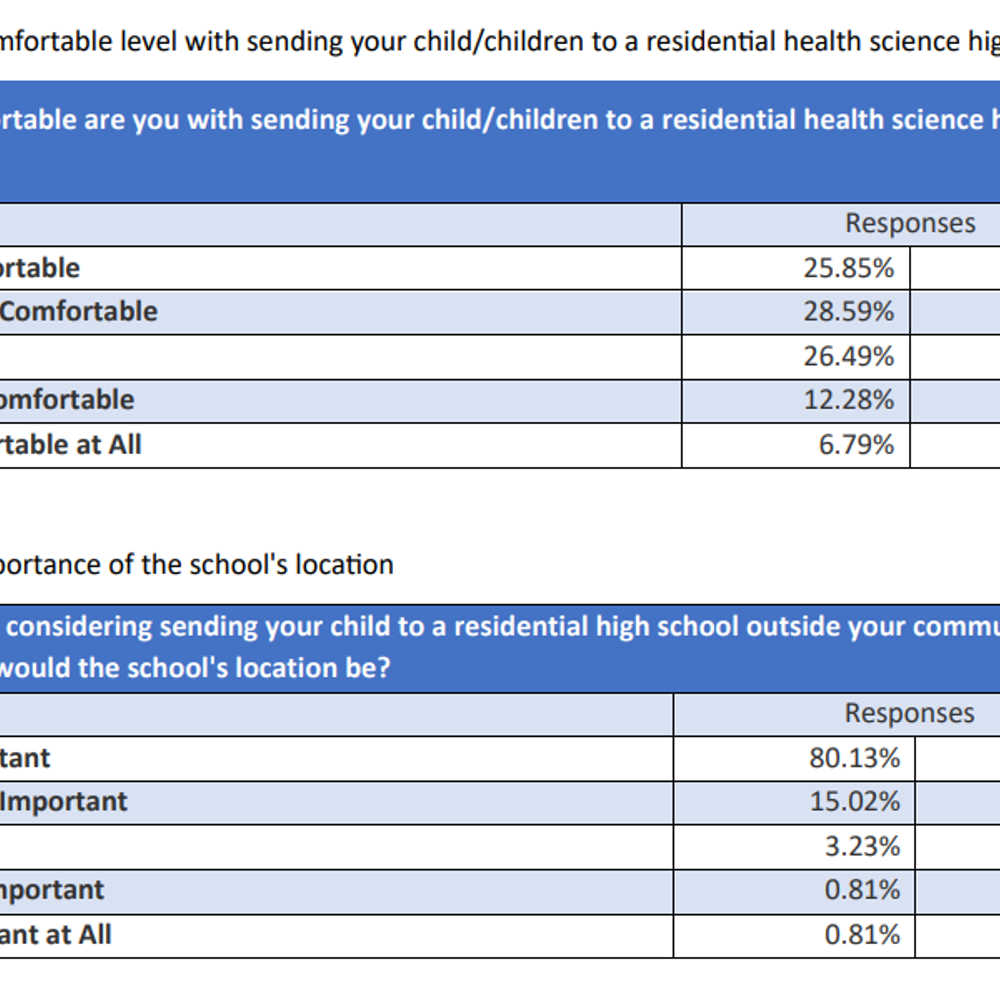MONTGOMERY — Demopolis is the best spot for a new Alabama School of Healthcare Sciences, according to a feasibility study released this week.
New York-based Bloomberg Philanthropies announced in January they were donating $26.4 million to the State of Alabama to assist in funding a potential new health sciences high school in Demopolis.
Bloomberg listed the "University of Alabama at Birmingham Health System and other state health systems and hospitals" as the school's health care partners and estimated it would be open by at least 2026.
The idea for the school was first announced by Gov. Kay Ivey in her State of the State address before the legislative session in 2023. However, a $30 million funding request for start-up funding by Ivey to the Legislature never advanced in the 2023 session. Instead, legislators approved a $500,000 feasibility study to examine establishing such a school.
Ivey again put $30 million in her proposed budget in 2024, but it will need the legislature's approval.

"I'm hopeful that it will get through. Demopolis came back number one to be the best place to put that school. This is going to be a return we can see on our investment in the State of Alabama. I believe that this is the best spot, and we're going to fight for it. I don't know if it's going to be a walk-through, but we're definitely going to be there to make our case for it," Senate Minority Leader Bobby Singleton (D-Greensboro), who represents Demopolis, told reporters on Thursday.
The school's estimated start-up and construction cost would be about $62 million. According to the study, annual staff and enrollment costs would be about $8.7 million. The study projects the school's enrollment at 325 students.
Consultants wrote in the feasibility study, "Alabama desperately needs a state-sponsored residential health science high school to meet current and future healthcare workforce challenges."

"There is no one perfect community that meets all the requirements for success. After investing three months traveling to seven communities and interviewing more than one hundred community leaders in healthcare, higher education, industry, and economic development, we are confident that any of the three recommended communities, namely Demopolis, Pell City, or Dothan can successfully host, co-design, and co-create a successful and sustainable health science high school," the authors of the feasibility study said. "Communities that were not finalists, Centreville, Tuskegee, Selma, and Montgomery, also have strengths and assets that can help the success of the health science high school, regardless of the selected community. Health centers and residency programs in Centreville, the V.A. in Montgomery and Tuskegee, Tuskegee University, and the community hospital in Selma showed great interest and support, as did elected officials and community leaders. We hope that assets in all Alabama communities can be used to strengthen the health science high school regardless of where the State decides it to be located."

In her State of the State address on Tuesday, Ivey said, "This school will directly expose young men and women from around Alabama, particularly rural students, to various healthcare fields. And it gives them options. Maybe they want to graduate with a credential to immediately start working a high-wage career, or maybe they want to go to college and become a nurse or maybe even attend medical or dental school."
"We will now give these students an opportunity and a state-of-the-art school to attend. Over the last year, we have finalized the plans, and I am proposing we locate this school in Demopolis. Already, we have received tremendous community support, and the gold standard of rural healthcare is just a few steps away from the proposed site where these students will learn. And on top of all of this, the feasibility report commissioned by the Legislature last year has once again validated Demopolis as the ideal location for this important school – folks, let's get this important project done," Ivey said.
The consultants also surveyed parents to see how comfortable they were with sending their kids to a residential high school. About 54% of respondents said they were somewhat comfortable or very comfortable with sending their kids to residential health science high school. 95% of respondents said the school's location would be somewhat or very important in the decision to send their child to such a school.

To connect with the author of this story or to comment, email caleb.taylor@1819News.com.
Don't miss out! Subscribe to our newsletter and get our top stories every weekday morning.










